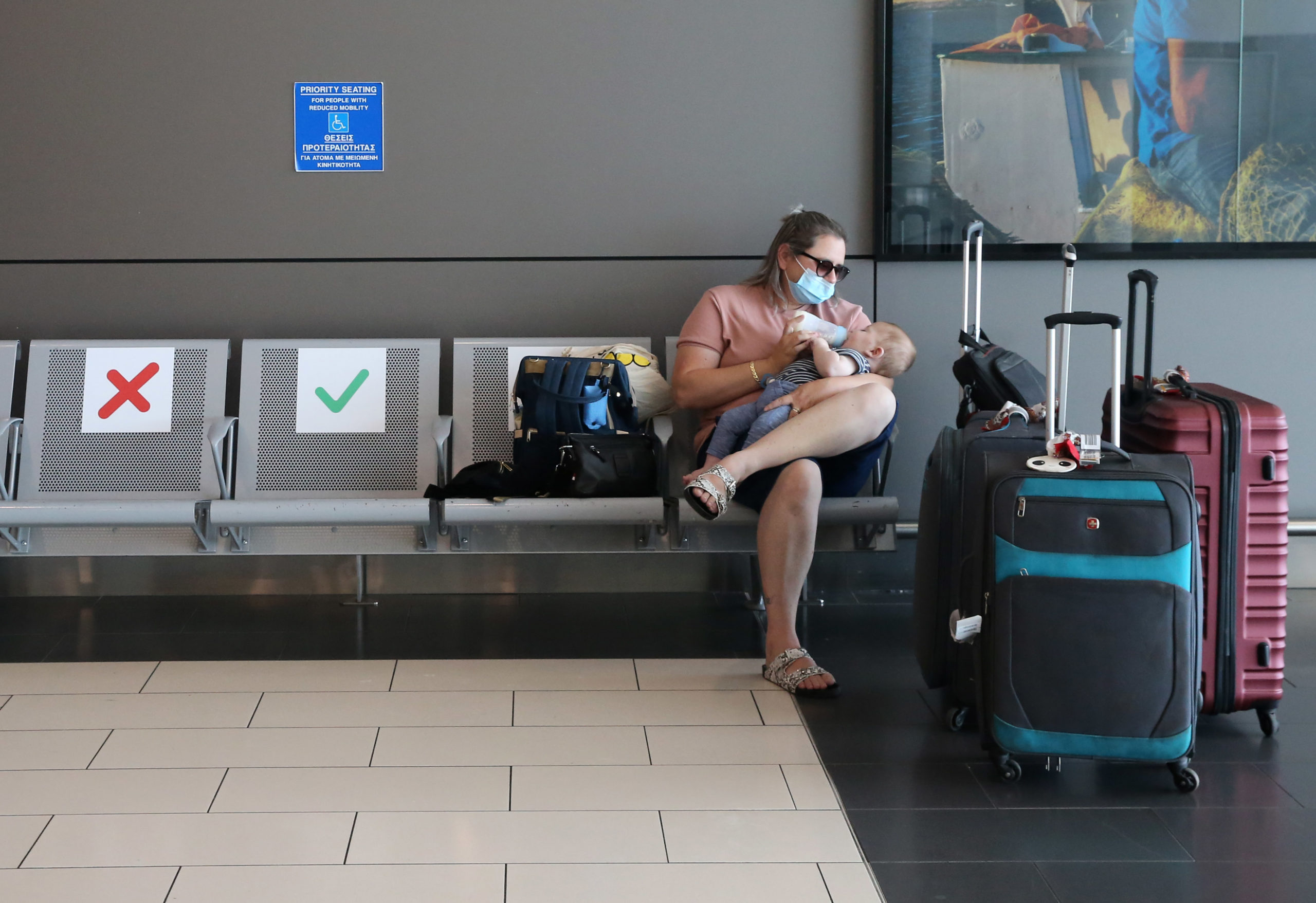Cyprus removing Greece from its ‘safe’ list has caused an uproar among tourism stakeholders who perceive the downgrade as the final blow to the country’s summer season.
After health authorities revised the countries’ COVID-19 risk, Greece was knocked to category B, which means that Greek tourists wanting to come to Cyprus for a getaway will be asked for a coronavirus negative test upon their entry.
Greece is also the number one holiday destinations for Cypriots – who will also need to get tested.
Morocco was removed entirely from Cyprus safe list due to their worsening coronavirus data while Thailand was upgraded from Category B to A.
Greece’s demotion came after a spike in cases with a number of Cypriots found to be positive for coronavirus after returning from a holiday, especially from the Greek islands.
Greece is now reporting around between 75 and 100 cases a day, 110 last Saturday.
Stakeholders fear that this latest setback with Greece will be the last nail in the coffin for Cyprus tourism.
Association of Cyprus Travel Agents chairman Vasilis Stamataris told CyBC radio this was a deadly blow for their industry as a large number of Cypriots are cancelling their holiday packages for Greece and its islands while airlines are already cutting flights to Greece.
Cyprus Airways announced the suspension of flights to Thessaloniki and the Greek island of Skiathos from 18 August while reducing the frequency of flights to Athens and Heraklion.
Stamataris described the situation as for tour operators as “tragic”.
“We only go to our offices to cancel trips. Our last hope was Greece”.
He argued the decision to place Greece in category B makes it a less attractive destination and more expensive – tests at the airport for Cypriots coming back cost €60.
Stamataris said the cancellations started when the cases in Greece jumped causing Nicosia to start discussing whether they should place Greece in category B.
Greek Tourism Minister Haris Theoharis said he did not understand why Cyprus decided to downgrade Greece in its three-tier risk system grouping countries based on their epidemiological data, hoping the issue will be clarified between the two countries soon.
“It is a decision that I do not understand, I consider it to be wrong, I do not know exactly what criteria it was based on,” Theoharis told radio station Parapolitika FM.
In revaluating its travel list, the Health Ministry took into account relevant coronavirus data.
Visitors from the 23 classified Category A countries are not required to provide a negative COVID-19 test.
Arrivals from countries in Category B need proof they have tested negative for COVID-19 within 72 hours prior to boarding their flight to Cyprus.
All passengers, irrespective of category, are obligated to submit an application online for CyprusFlightPass (https://cyprusflightpass.gov.cy/) within 24 hours of departure.
For public health reasons and to monitor the epidemiological situation, passenger arrivals are randomly tested.
Classification of countries is based on their reproduction rate R (t) for COVID-19, the number of new cases, the number of tests, the mortality rate per 100,000 people, the estimated prevalence and WHO indicators.
The ministry says classification of countries based on epidemiological risk is “exceptionally dynamic” and can change at any given moment as the pandemic develops.
Group A – Low-risk countries
These are countries with R (t) of below 1 and/or a small number of new cases (<1/100,000 inhabitants a day) and/or very low COVID19 mortality (<5-10/100,000 inhabitants) and/or sporadic cases or cluster of cases according to WHO and /or at least satisfactory tests (>3000 tests/100,000 residents):
EU members: 1) Austria, 2) Germany, 3) Denmark, 4) Estonia, 5) Ireland, 6) Latvia, 7) Lithuania, 8) Malta, 9) Hungary, 10) Poland, 11) Slovakia, 12) Slovenia, 13) Finland
Members of Schengen: 1) Switzerland, 2) Iceland, 3) Liechtenstein, 4) Norway
Third countries: 1) Georgia, 2) Japan, 3) Canada, 4) New Zealand, 5) South Korea, 6) Thailand
Group B
These are countries with R (t) above 1 and/or new cases of >1/100,000 people a day and/or increased COVID-19 mortality (>10/100,000 people) and/or limited lab tests (<2000 tests/100,000 people) or lack of classification by WHO.
The Category now includes 18 countries down from 19 in the previous list.
EU members: 1) Belgium, 2) France, 3) Spain, 4) Italy, 5) Croatia, 6) The Netherlands 7) the Czech Republic, 8) the UK 9) Greece
Small nations: 1) Andorra, 2) Monaco, 3) Vatican City, 4) San Marino
Third countries: 1) Australia, 2) Ruanda, 3) Tunisia, 4) Uruguay, 5) China
Category C
EU Member state 1) Bulgaria, 2) Portugal, 3) Sweden, 4) Luxembourg, 5) Romania
Third countries: 1) Algeria, 2) Serbia, 3) Morocco, 4) Montenegro
New classifications are effective from August 6










